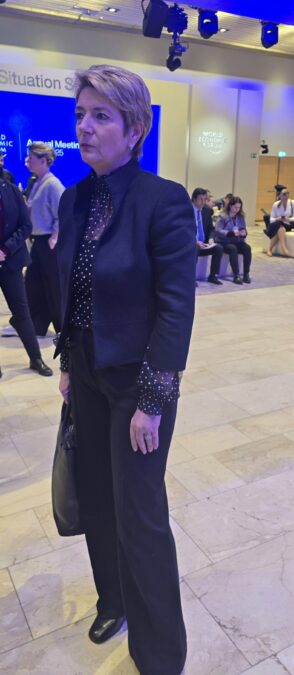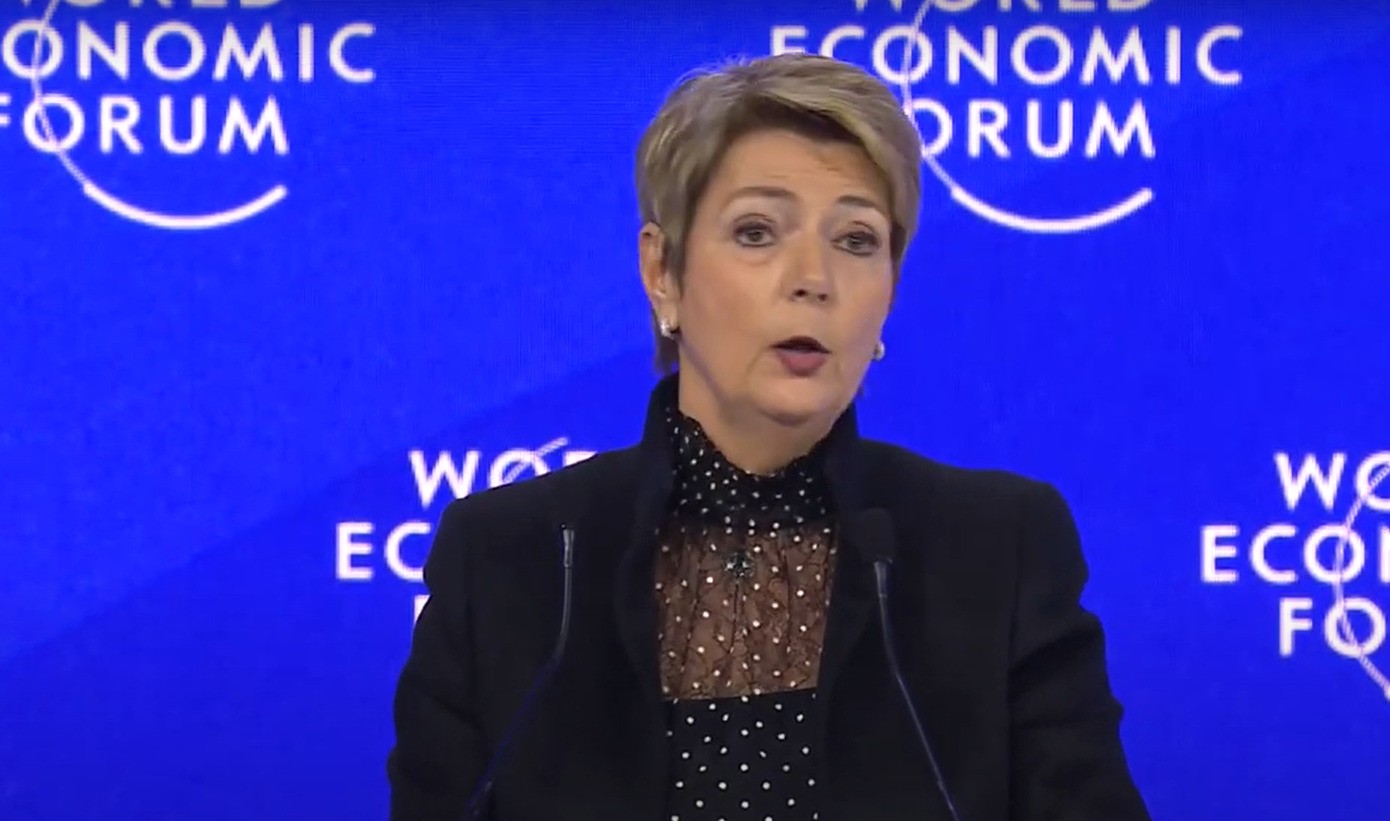Davos, Switzerland – At Davos 2025, Switzerland’s President Karin Keller-Sutter highlighted the critical role of financial stability in maintaining global economic health, emphasizing that national strength is key to fostering international solidarity.
Speaking exclusively to TRENDS, she stressed the deeply interconnected nature of global financial markets and the responsibility of individual nations in safeguarding stability.
“There’s nothing that is so interlinked and so global as international financial markets,” Keller-Sutter said. “Only if you are financially stable, you are not a risk for the international financial market stability because they’re so interlinked.”
The Swiss leader underlined the importance of countries acting from a position of internal strength to contribute effectively to global economic resilience.

“It is very important to act as a country and to really also focus on your strength because you can have international solidarity if you can act from the inner strength of national states,” she explained.
Keller-Sutter’s priorities for 2025 center on bolstering national systems to reduce risks to the international financial architecture. “This (inner strength of national states) also leads to financial stability, which, of course, is also important internationally,” she noted, highlighting the need for a collaborative approach to economic challenges.
Earlier, in her World Economic Forum speech, Keller-Sutter made the case for economic growth, fair competition and global cooperation, along with European Commission President Ursula von der Leyen and Chinese Vice-Premier Ding Xuexiang. This was significant as it came a day after Donald Trump took the presidential oath of office in the United States.
“Trade wars have no future,” said Xiuxiang, referring to the threat of a trade war between the US and China. Trump has threatened China with high punitive tariffs.
The World Economic Forum Annual Meeting 2025, taking place in Davos-Klosters from 20 to 24 January, convenes global leaders under the theme, Collaboration for the Intelligent Age. The meetings will foster new partnerships and insights to shape a more sustainable, inclusive future in an era of rapidly advancing technology, focusing on five key areas: Reimagining Growth, Industries in the Intelligent Age, Investing in People, Safeguarding the Planet, and Rebuilding Trust
Switzerland is the host country for the Annual Meeting. More than 350 governmental leaders are participating this year, including 60 heads of state and government. There is strong government representation from around the world.
(Edited by Riyaz Wani)

